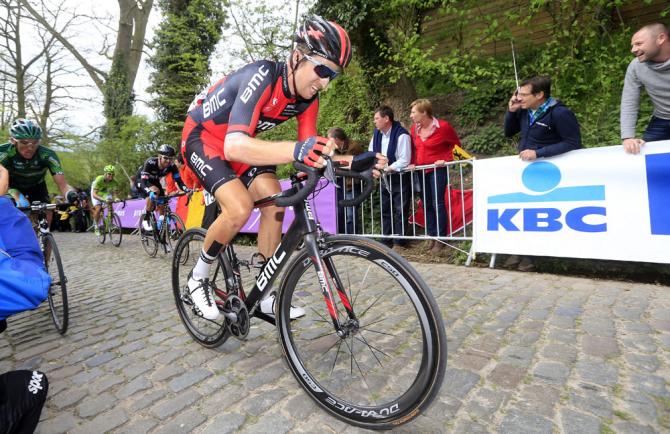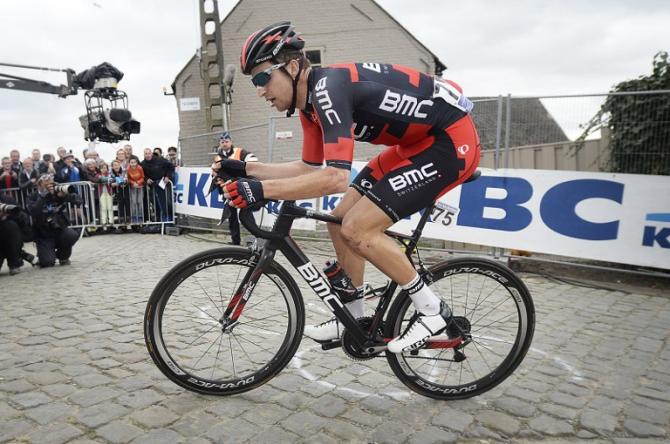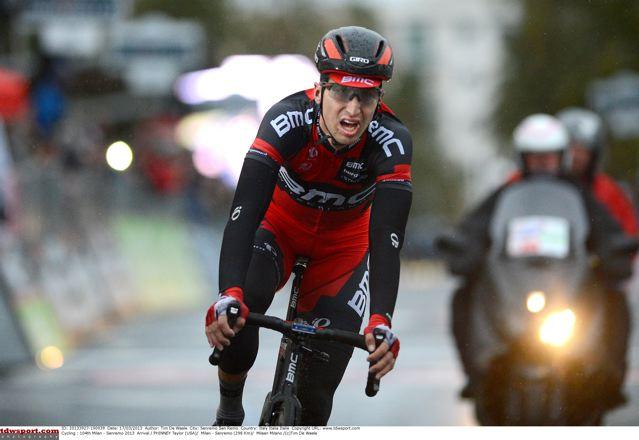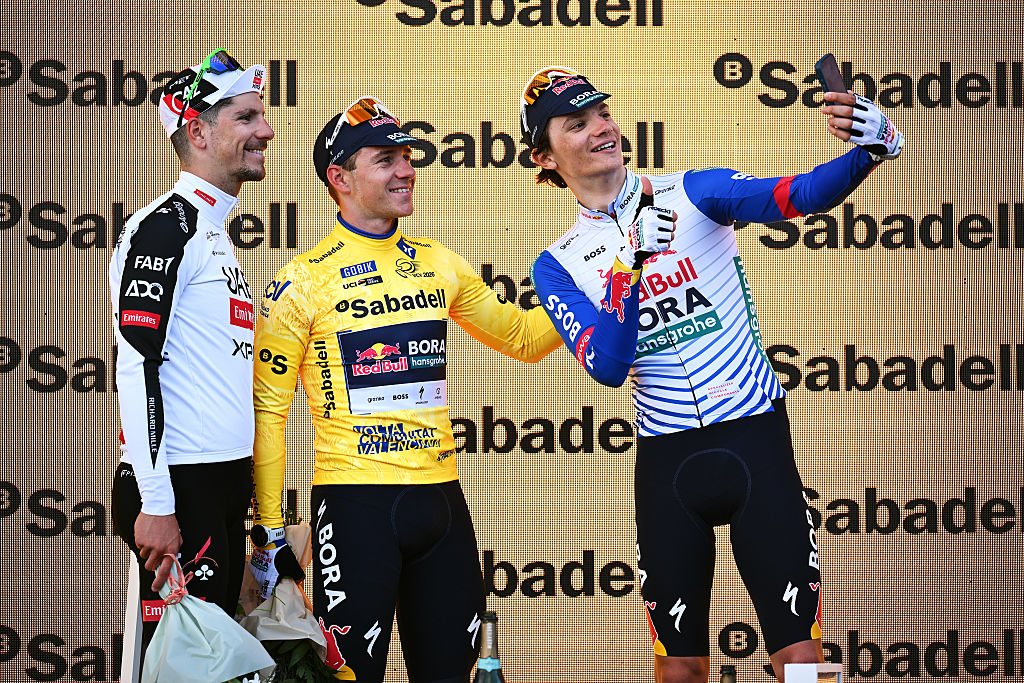Phinney plays the team game in Tour of Flanders
Team impressed with American's performance
The latest race content, interviews, features, reviews and expert buying guides, direct to your inbox!
You are now subscribed
Your newsletter sign-up was successful



While his teammate Greg van Avermaet (BMC) took the spoils on the Tour of Flanders podium, Taylor Phinney was left knowing that he played a critical role in the Belgian’s success. Not a small thing when you consider that it was his first time at one of the year’s toughest races.
On top of playing the team game very well, he proved that he is a real contender for this type of race in the future. As the race progressed, talk began that Phinney could even be a contender for the podium. He continued to stay out front as one by one the 11-man breakaway was whittled down. The 23-year-old looked strong on the Paterberg as he distanced his remaining two companions, and was finally caught just before the next climb.
"I was feeling really good," Phinney said at the finish. "I knew that I was one of the strongest from the breakaway and I just wanted to try and last as long as I could and try to be helpful in the later part of the race when it really started to kick off."
Phinney’s participation in the event looked like it might not happen, after he fell ill just before Milan-San Remo. As the flu-like symptoms continued, Phinney missed yet more racing but finally came back at Gent-Wevelgem - where he finished in the front group – before making his debut at the Tour of Flanders. Phinney’s strong performance in the race, despite his less than ideal preparation, gave the team yet more belief in what he is capable of.
"He’s a good Classics rider, but he’s a good everything rider," said BMC’s sporting manager Allan Peiper. "We’ve got confidence in him. He was seventh in Milan-San Remo (in 2013), so he can do the distance. It’s just getting the pieces in place at the right time. He’s still only young, 24. It takes a while to learn the races, learn how they go and learn how to get ready for them. It was only mentioned in the newspaper that all the favourites were all ready right at the right time and that takes experience."
His potential is undoubtable but, for the American, Flanders was all about the team game. Phinney’s time in the break meant that BMC didn’t have to waste energy chasing and could save their resources until later in the race. "We needed guys to go out there first," explained Peiper. "It’s like a big roll on effect. You’ve got Phinney out there with 11 guys, you’re protected, you get another guy out there in the counter attack, you’re protected. What goes around comes around, and the next guy is protected and in the end it is set up for Greg, which was perfect."
The American was one of many riders within the team to be set the task of searching out the day’s main break, and he did it with the same dedication that he sets to any job given by the team. With the importance of the race, there were a number of strong attacks early on, but it took Phinney and his band of men 40 kilometres before they were able to pull out a sizable gap on the peloton.
The latest race content, interviews, features, reviews and expert buying guides, direct to your inbox!
"We pushed pretty hard to establish it, we had some strong dudes in there with Daryl Impey and (Aliaksandr) Kuchynski and Stig Broeckx," Phinney said at the finish. "It is always kind of a relief to get into a big breakaway in a Monument because you don’t have to deal with the stress all day. It kind of sets the team up well because they know that they always have me up there if they want to try and bridge across. It’s just good for morale."
Phinney was hardly wrong in his assessment of being safe in the breakaway, as carnage seemed to unfold behind him. By the time the race ended, almost half the field had called it quits and almost all of them had had some run-in with the tarmac. After the last few weeks that Phinney’s had it would have been the last thing he needed.
Paris-Roubaix is next on the agenda for Phinney, where he had won the under 23 event twice. With the form that he is in we could see another strong performance from the BMC rider in a week’s time.
Born in Ireland to a cycling family and later moved to the Isle of Man, so there was no surprise when I got into the sport. Studied sports journalism at university before going on to do a Masters in sports broadcast. After university I spent three months interning at Eurosport, where I covered the Tour de France. In 2012 I started at Procycling Magazine, before becoming the deputy editor of Procycling Week. I then joined Cyclingnews, in December 2013.
